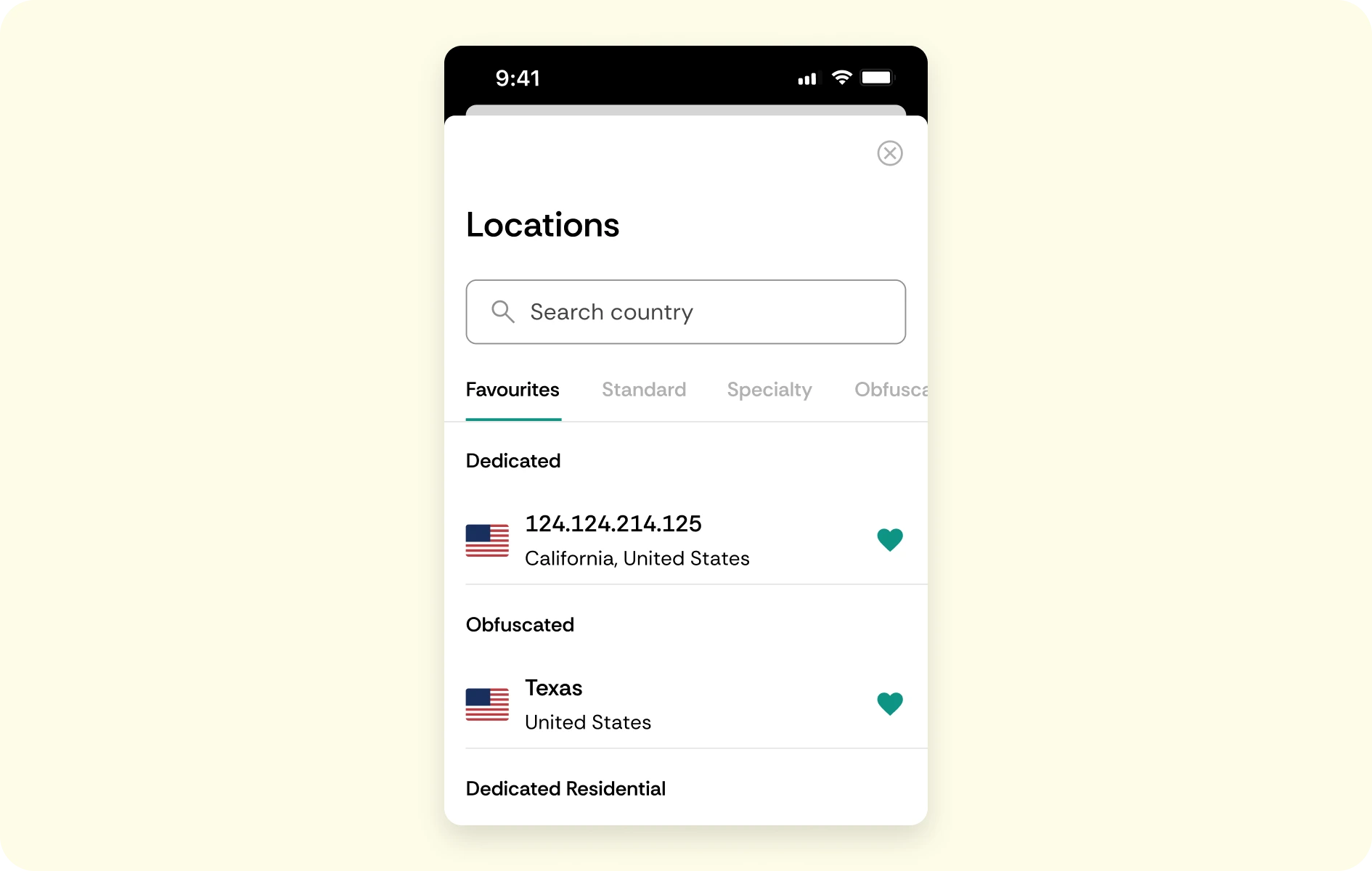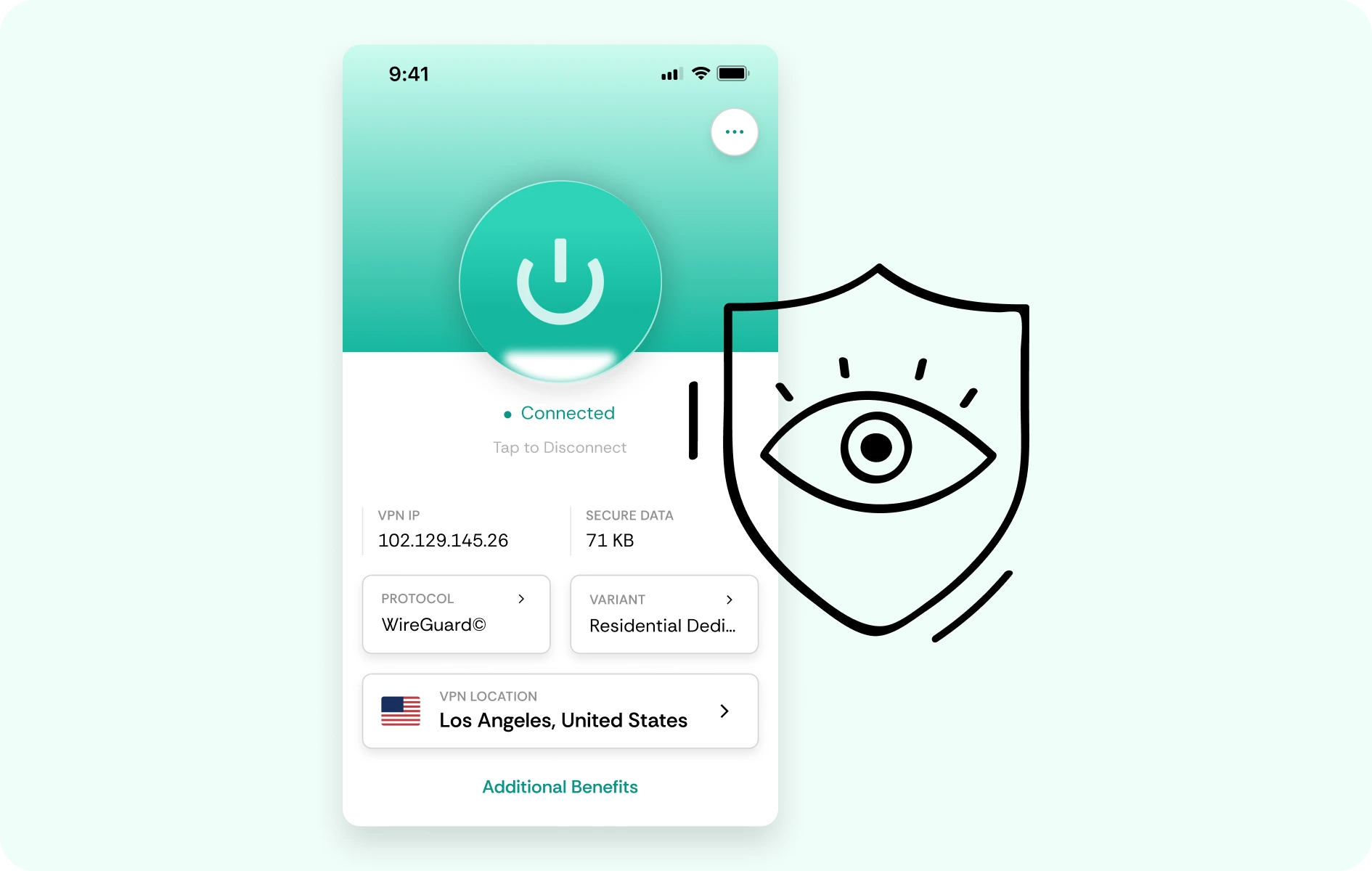Native residential VPN benefits
CometVPN features
Multitude of VPN options
Our services have an incredible array of features – dedicated and rotating IPs, addresses sourced from household devices, obfuscated VPNs for those extra concerned with security. And there’s always more to come

No-logs policy
Keeping you safe from prying eyes and interested parties is the foundation of our business. Not only we do not keep any logs of your activity, we also established the company outside of the 14 Eyes Alliance, so digital surveillance laws wouldn’t apply

Native residential IP locations
Americas
Europe
Asia Pacific
Middle East And Africa
Customer reviews
-
Lauren Bennett
Good VPN for bypassing social media censorship in Turkey.
-
Amelia Cross
I have been travelling a lot for the past few years, and as a rule - CometVPN is always on. It helps me to stay engaged with the news from my home country and I feel much safer knowing that my internet traffic is hidden.
-
Marcus Holloway
I just wanted privacy, so this was the perfect choice for me - I wasn’t forced to buy overpriced features, simple for everyday use. The only drawback is that sometimes the interface is not very intuitive, but their consultants have been very helpful for this.
-
Samuel Whitaker
CometVPN, although a bit limited in features, worked reliably. Truly a solid choice as I couldn’t find anything more affordable that also works for what VPN is supposed to do.
-
Ethan Caldwell
As a Canadian, I was frustrated by not being able to watch U.S. Netflix content, until I found CometVPN. I realized that with their servers, I could bypass restrictions easily and enjoy unlimited streaming.
Native residential VPN use cases
-
Keep your secrets
Residential IPs, sourced from reputable providers, are the best way to stay anonymous. Coupled with a no-logs policy, you’re the safest you can be
-
Bypass georestrictions
Regular VPNs sometimes get detected, but websites stand no chance against a native residential IP – you’ll always access whatever you want
-
Customize rotation
You can keep the same IP for up to 24 hours if the task calls for a stable online identity. Or you can switch it as frequently as you want to avoid any possible detection
Choose your native residential VPN plan
most popular
24 Months
+3 Months Free
12 Months
+1 Month Free
Residential VPN
Uses IP addresses derived from household devices, making detecting your VPN usage nearly impossible
Dedicated Residential IP
Get an IP address that’s reserved just for you.
Obfuscated VPN
Hide your traces even further, making it difficult to detect that you’re using a VPN service
30-day money-back guarantee.
Payment methods:
Questions & answers
What is a residential VPN?
Residential VPNs source the IP addresses and devices from regular households. Once consent is acquired from a regular internet user, their device is used to simply forward network traffic (no access is ever provided to the device itself). Regular VPNs, on the other hand, use business-owned servers, which while often faster, are significantly easier to detect.
What is a native residential VPN?
A residential VPN simply gives you an IP address from a household device without many additional features. Native residential VPNs provide the option to stick with or rotate IPs freely and have a better IP address reputation.
Are residential VPNs detectable?
Technically, yes, but only if you intentionally perform activities that point back to you. For example, if you use the same social media account and make posts – a VPN won’t be able to hide that activity and the website will know that it is still you.
How do streaming services know you’re using a VPN?
Streaming services will have lists of known data center IPs, used by popular providers, and block them outright. Additionally, some virtual private network providers use a relatively small pool of IPs, allowing many users to share the same one, making it for streaming services to protect themselves from such connections.
What is the difference between a residential VPN and a residential proxy?
They use similar underlying technology, however, a residential VPN comes with all the handy security and quality of life features that most proxies lack. In essence, the best residential IP VPN is easy to use while also hiding your true IP address better than a regular VPN.
Are residential VPNs legal?
Yes, they are almost no different, legally, from a regular VPN. So, if your country allows the usage of VPNs, then residential VPNs will be legal as well.
What is the difference between free and paid VPN?
A free VPN supposedly provides the same features as a paid one, but that is considered impossible. VPNs are expensive to build and maintain, therefore a free VPN provider needs to make their money back. Usually, it’s through data selling, malware, or other shady tactics. You also won’t find a free residential VPN that’s legit as they are even more expensive.